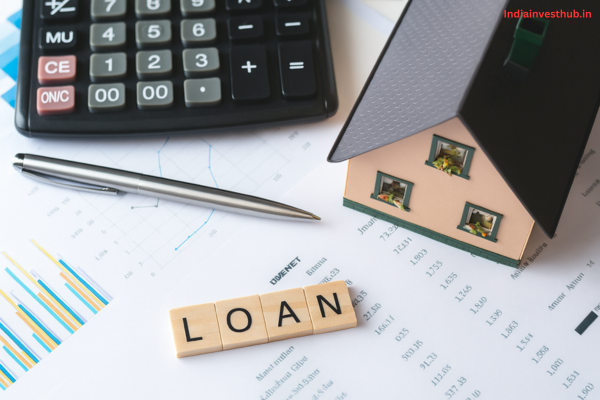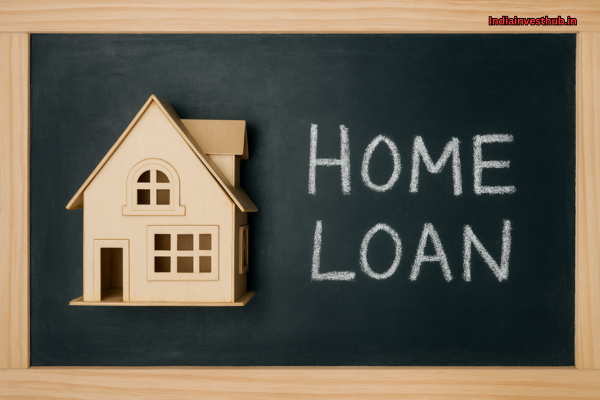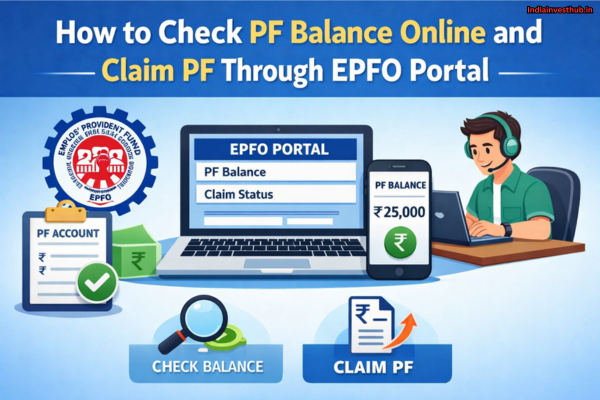Home Loan – A Journey Toward Financial Freedom
When Ramesh bought his dream home in Chennai in 2018 with a ₹50 lakh home loan, it felt like a milestone. But after five years of EMIs, he realized that despite paying regularly, the loan balance hadn’t reduced much. Curious, he checked his statement and discovered that most of his early EMIs went toward interest, not principal. Determined to pay off his home loan faster, he began researching whether increasing his EMI or making extra payments was the smarter move.
Like Ramesh, millions of Indians face the same dilemma every month—should they increase their EMI or make lump-sum prepayments to close the loan early? According to RBI data (RBI Bulletin, 2024), the total outstanding housing loans in India crossed ₹21.8 lakh crore, showing how deeply home loans are integrated into household finances. Understanding how to manage and optimize your repayment strategy can save lakhs in interest over time.
Let’s dive deep and help people understand the best way to pay off your home loan faster.
Understanding How Home Loan Repayments Work:

Before deciding between increasing EMIs or prepaying, it’s essential to understand how a home loan EMI (Equated Monthly Instalment) works.
Each EMI consists of two parts:
- Principal repayment
- Interest payment
In the initial years of your loan, interest takes up the major share of your EMI. As time passes, the proportion of principal increases. This is because of the reducing balance method—interest is calculated on the remaining loan balance.
For example:
If you have a ₹50 lakh home loan for 20 years at an interest rate of 8.5%, your monthly EMI would be around ₹43,391. Over 20 years, you’ll end up paying nearly ₹53.13 lakh as interest—more than the loan amount itself!
(Source: HDFC EMI Calculator, 2025)
This means any step that reduces your loan principal earlier—like increasing your EMI or making extra payments—can dramatically reduce total interest and shorten the loan term.
Can a Low Credit Score Stop You from Getting a Home Loan in India?
What Does Increasing Your EMI Mean?
Increasing your EMI is one of the simplest ways to speed up your home loan repayment. Many banks allow borrowers to revise their EMI upward as their income grows.
For instance, if you get a salary hike of 10–15%, instead of increasing your lifestyle expenses, you could increase your EMI by the same percentage.
Let’s look at an example:
- Original EMI: ₹43,391 for ₹50 lakh loan @8.5% for 20 years
- If you increase EMI by just ₹5,000 (to ₹48,391), you can finish your loan in 16 years and 3 months instead of 20 years.
- That’s a saving of ₹9.9 lakh in interest!
(Source: BankBazaar Loan Calculator, 2025)
This approach works best if you have a steady and growing income. It doesn’t require lump-sum cash but relies on consistency. It’s also psychologically simpler since your bank automatically deducts the revised EMI each month.
Making Extra Payments: How Prepayment Works
A prepayment means paying extra money—apart from your regular EMI—toward your home loan principal. This can be done either as a partial prepayment or full prepayment.
- Partial prepayment: You make extra payments whenever you have surplus funds (like bonuses or savings).
- Full prepayment: You pay off the entire remaining balance before the loan tenure ends.
For example:
If you make a ₹2 lakh prepayment on your ₹50 lakh loan after 5 years, you can reduce your loan tenure by around 2 years and 4 months or save ₹5.8 lakh in interest (depending on the lender’s terms).
According to a report by Moneycontrol (2024), nearly 28% of Indian borrowers made at least one prepayment during their loan tenure, showing a rising awareness about loan optimization.
The advantage of prepayment is flexibility—you can pay whenever you have extra cash. However, it requires discipline and awareness of your lender’s prepayment policies.
Increase EMI vs Make Extra Payments: Key Differences
| Feature | Increase EMI | Make Extra Payments |
|---|---|---|
| Frequency | Monthly commitment | One-time or occasional |
| Flexibility | Low | High |
| Effort | Automatic via bank | Requires manual payment |
| Ideal for | Salaried individuals with rising income | Those receiving bonuses or lump sums |
| Interest Savings | Significant if increased early | Significant if done consistently |
| Loan Tenure Reduction | Gradual | Immediate |
| Tax Benefits | Continue as usual | May reduce overall interest deductions |
Both methods save you money, but the best strategy often combines the two—slightly increasing your EMI while also making occasional prepayments when possible.
How to Calculate the Impact on Your Loan Tenure and Interest:
Before deciding, you can use a home loan calculator (available on websites like HDFC, SBI, or BankBazaar). Here’s an example of the impact:
| Action | Result | Total Interest Saved |
|---|---|---|
| ₹5,000 EMI increase | Loan closes 3.7 years earlier | ₹9.9 lakh |
| ₹2 lakh prepayment after 5 years | Loan closes 2.4 years earlier | ₹5.8 lakh |
| EMI increase + ₹2 lakh prepayment | Loan closes 5.5 years earlier | ₹14.7 lakh |
This clearly shows that combining both methods maximizes savings and helps you achieve a debt-free life faster.
Tax Implications of Prepaying Your Home Loan:
When you prepay your home loan, your Section 24(b) and Section 80C tax benefits may reduce since these deductions depend on the amount of interest and principal paid each year.
- Section 80C: Up to ₹1.5 lakh deduction on principal repayment.
- Section 24(b): Up to ₹2 lakh deduction on interest payment for self-occupied property.
If your prepayment significantly reduces interest, your tax savings will decrease—but remember, saving ₹10 lakh in interest is better than saving ₹30,000 in taxes.
(Source: Income Tax India Portal, 2025)
So, the focus should be on minimizing your total financial outflow, not just maximizing tax deductions.
Smart Strategies to Pay Off Your Home Loan Faster:
- Increase EMI annually: Every time your salary rises, increase your EMI by 5–10%.
- Make partial prepayments: Use yearly bonuses, incentives, or investment returns.
- Switch to a lower interest rate: Compare lenders and transfer your loan if the new rate is 0.5–1% lower.
- Choose shorter tenure when possible: A shorter tenure reduces total interest, even though EMI is higher.
- Automate prepayments: Some banks allow automated top-up payments every 6 or 12 months.
- Avoid unnecessary top-ups: Don’t increase loan balance for personal use—it delays freedom.
- Monitor your amortization schedule: Track your balance yearly to stay motivated.
By combining these strategies, you can cut your 20-year loan to 12–14 years, saving ₹10–15 lakh in interest.
Credit Card Hacks: Maximizing Rewards and Minimizing Risk
Common Mistakes Borrowers Make When Trying to Close Loans Early:
- ❌ Using all emergency funds for prepayment.
- ❌ Ignoring other high-interest loans like credit cards.
- ❌ Not checking prepayment penalties.
- ❌ Forgetting to take revised amortization statements.
- ❌ Overlooking the opportunity cost—investing in mutual funds might sometimes yield better returns.
Avoiding these mistakes ensures your financial plan stays strong and flexible.
When Not to Prepay or Increase EMI:
While early repayment sounds great, there are times it’s better not to rush:
- If your home loan interest rate is below inflation or under 8%, investing may give better returns.
- If you lack emergency savings (at least 6 months’ expenses), don’t use all your cash.
- If you’re eligible for large tax deductions and have short tenure left.
- If prepayment penalties apply (especially for fixed-rate loans).
In such cases, balance your approach—part prepayment and part investment can be smarter.
Preparing for Financial Surprises: How to Budget and Build an Emergency Fund Effectively
FAQs – Increase Your EMI or Make Extra Payments?
Q1: Does increasing EMI reduce total interest?
👉Yes. Increasing EMI means you repay the principal faster, reducing total interest over the loan period.
Q2: Can I make multiple prepayments in a year?
👉Yes. Most banks allow multiple prepayments, though some may have a minimum amount limit (e.g., ₹25,000 or 1 EMI).
Q3: Is there any penalty for prepaying a home loan?
👉For floating-rate home loans, RBI regulations prohibit prepayment penalties. Fixed-rate loans may still charge 1–2%.
Q4: How do I know how much to prepay?
👉Use a loan calculator—aim for at least 5–10% of the outstanding principal annually if possible.
Q5: What’s better for salaried professionals—increasing EMI or lump-sum prepayment?
👉Increasing EMI works best for steady earners, while prepayments are ideal when you receive variable income like bonuses or incentives.
Conclusion:
So, Which Option Is Right for You?
- 💡 If you have steady income growth, choose to increase your EMI every year.
- 💡 If you receive occasional bonuses or windfalls, use them for partial prepayments.
- 💡 If your goal is maximum savings, combine both strategies for the best results.
- 💡 Always compare your home loan interest rate with other investment returns before deciding.
- 💡 Keep your emergency fund intact—don’t exhaust all savings for prepayment.
- 💡 Track your loan statement regularly to stay motivated and informed.
Ultimately, the right choice depends on your income stability, risk tolerance, and financial goals. Remember, every rupee paid early saves multiple rupees in interest—so why let your money sleep in low-yield accounts when it can help you achieve financial freedom faster?
So, what’s your next step toward becoming debt-free—will you increase your EMI or make an extra payment this year?





